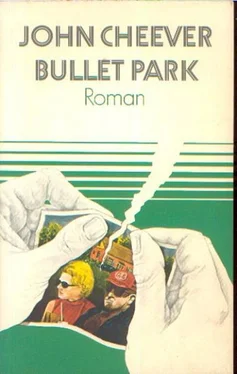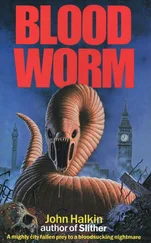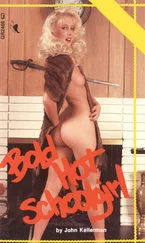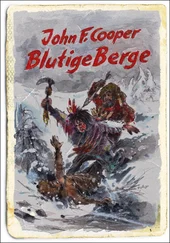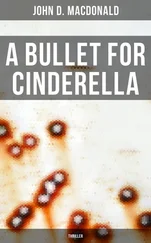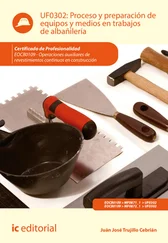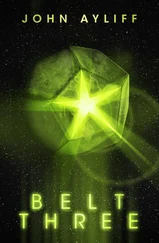"Didn't I see your son directing traffic at the Browns'," Hammer asked.
"Yes," Nailles laughed. "He directs traffic at cocktail parties. He's been terribly sick."
"What was the matter?"
"Mononucleosis."
"Who's your doctor?"
"Well we had Mullin until they shut him down and then we went to old Dr. Feigart but neither of them really cured Tony. It was a very strange thing. He'd been sick for over a month when someone told us about this guru. He calls himself Swami Rutuola. He lives over the funeral parlor on River Street. He came to the house one night and I don't know how he did it but he cured Tony."
"Is he a holy man?"
"I really don't know. I don't know anything about him. I don't even know what he did. I wasn't allowed into the room. But he fixed up Tony. He's fine now. He plays basketball and directs traffic at cocktail parties. I must remind him that the Lewellens are having a party on Friday. Well, shall we go?"
They walked back through the woods, the executioner and his victim, trailed by the old setter. Nailles stowed their tack in the back of the car and then opened the door for Tessie, "Jump in, Tessie," he said, "jump in, girl." Tessie whined. Then she made a lurch for the seat and fell to the ground.
"Poor old girl," Nailles said. He picked her up, an awkward armful with her legs sticking out, and laid her on the back seat of the car.
"Why don't you do something about her," Hammer asked.
"Well I've done everything I can or almost everything," Nailles said. "There is a kind of serum you can get, a distillate of Novocain. It's supposed to prolong a dog's life but it costs fifteen dollars a shot and they have to have it once a week."
"I didn't mean that," Hammer said.
"What did you mean?"
"Why don't you shoot her?"
The contemptible callousness of his new companion, the heartless brutality involved in the thought of murdering a beloved and trusting old dog, provoked a rage in Nailles so towering and so pure that for a moment he might have killed Hammer.
He said nothing and they drove back to Bullet Park.
Have you ever committed a murder? Have you ever known the homicide's sublime feeling of rightness? Conscientious men live like the citizens of some rainy border country, familiar with a dozen national anthems, their passports fat with visas, but they will be incapable of love and allegiance until they break the law. Have you ever waked on a summer morning to realize that this is the day when you will kill a man? The declarative splendor of the morning is unparalleled. Lift up a leaf to find a flaw but there will be none. The shade of every blade of grass is perfect. Hammer mowed his lawns that day. The imposture was thrilling. Look at Mr. Hammer cutting his grass. What a nice man Mr. Hammer must be.
Marietta had gone to Blenville for the weekend. Hammer was kept busy with his lawns until noon when he had a drink. He drove to the supermarket and bought a can of Mace and a loaded truncheon from the Self-Defense counter. Everything was ready, everything but the gasoline. He shook the can with which he had refueled the lawn mower. It was empty. He had this filled and then sat on his terrace. At three o'clock the mailman drove his truck down the street, stopping at the mailboxes that stood at the foot of every walk and drive. There was no mail for Hammer but from every house but his someone appeared-a cook, a mother-in-law, an invalid-and opened their boxes in a way that seemed furtive, intimate, almost sexual. It was a little like undoing one's trousers. They groped inside for some link to the tempestuous world-bills, love letters, checks and invitations. Then they returned. It was a cloudless day. The birds in the trees seemed, to Hammer, to be singing either an invitation list or the names of a law firm. Tichnor, Cabot, Ewing, Trilling and Stoope, they sang. He went into the pantry, smiling at the bottles. He did this three times and on his fourth trip to the pantry poured himself a stiff drink. He drank, he thought, not for courage or stimulation but to make the ecstasy of his lawlessness endurable. He drank too much. Hammer was not the sort of drinker who repeats himself, staggers and drives dangerously; but the inflammation of his thinking was hazardous. Towards dusk he wanted to tell someone his plans; he need a confidant.
He settled on the holy man over the funeral parlor and settled on him so decisively that he must, unconsciously, have made the decision earlier. He drove into the slums and pounded on the door of the Temple of Light. "Come in," said Rutu-ola. He sat in a chair with his right hand covering his bad eye.
"Are you the holy man?" Hammer asked.
"Oh no, no indeed. I've never claimed to be that. You must excuse me. I am very tired tonight."
"You cure the sick?"
"Sometimes, sometimes. I help with prayers but I am so tired tonight that I cannot help myself. I have said a hundred times that I am sitting in a house by the sea at four o'clock and that it is raining but I know that it is half past five and I am sitting in an old chair over a funeral parlor."
"You remember Tony Nailles?"
"Yes."
"I am going to kill him," Hammer said. "I am going to burn him on the altar of Christ's Church."
"Get out of here," the swami said. "Get out of the Temple of Light."
The Lewellens' guests had been invited for seven thirty. Tommy Lewellen stood on his terrace. His idea of a party was a day and a night he had spent in West Berlin with three Kurfürstendamm whores. That was a party. Things were different in Bullet Park, he thought, as he watched the caterer's waiters set tables for fifty under a tent lighted with paper lanterns. "The Amalgamated Development Corporation and Mr. and Mrs. Thomas Lewellen cordially request the pleasure…". The business name on the invitation was put there so Lewellen could claim the party as a tax exemption. If the claim was accepted the party would cost him nothing and he would net a thousand. Lewellen was more interested in the financial arrangements of his wife's parties than in anything else. He sometimes got so bored that he seemed to see straight through the display of elegance to the bills, canceled checks, even the nails in the floor. What was wrong with friendly talk and well-dressed men and women eating ham and chicken? Nothing, nothing, nothing at all except that the blandness of the scene would be offensive. No one would get drunk, no one would fight, no one would likely get screwed, nothing would be celebrated, commemorated or advanced. If the gathering he awaited stood at the brink of anything it stood at the brink of licentiousness. Sheer niceness, he thought, might drive a man to greet his guests wearing nothing but a cockwig. Gross and public indecencies would cure the evening of its timelessness and relate it vigorously to death. The waiters were setting out bowls of flowers. The flowers looked fresh enough but Lewellen guessed they had spent the afternoon at a wedding reception and would, after a night in the refrigerator, wilt during a fund-raising lunch in Greenwich, Connecticut.
The energies of change were almost unknown to Lewellen, but that the scene that was about to begin would claim to be totally innocent of change made it half a scene, half a loaf, half an anything, a picture cut from a magazine and pasted against the evening sky, and what a miserable thing was the sky-thought Lewellen-a boring reach of blue with some thunderclouds stacked up in the west like the towers of an old-fashioned West Side apartment hotel, the last abode of funky Hungarian widows who left their dirty dishes in the hallway. What a bore was the sky! Thunder sounded. The rhythm of thunder, thought Lewellen, was like the rhythm of a large orgasm. He liked that.
He could see against the clear afterglow in the northwest clouds of black smoke rising from the ghetto on the riverbanks. The wind was from the south, and if there had been any shooting he would not have heard it.
Читать дальше
